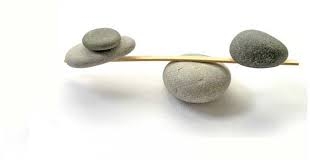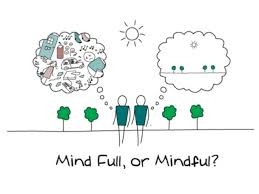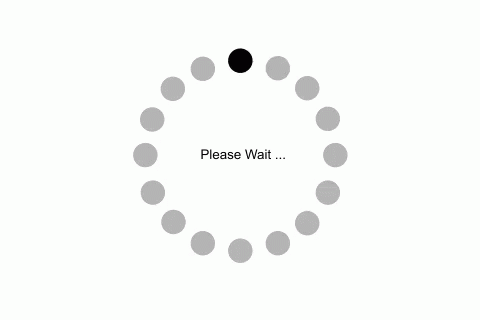The Ego
Literally a new Buddhist here, so I'm glad to find folks like myself. Grateful to have have found a philosophy that speaks to me and does not dissuade, but rather, encourages seeking, finding the truth for yourself. That to me is how we grow. Who needs someone else's blind belief or dogma thrust upon them. I am not a lockstep type of guy. Buddhism is truly an inviting perspective on this world. On to my current and often constant dilemma the "EGO." The ego always want you to be, wants you to I, me, my yourself. The good thing is through my practice, I am aware and often I ponder how the strength of one's ego can be constantly subdued. How do you try to not be offended, have hurt feelings, be superior or inferior. I know constant awareness in one way. What are some others?

Comments
Well, I often consider the Four Noble Truths...
This tells us that not only do we suffer ourselves, but everyone else suffers too. So when you consider whether someone has offended you, consider their suffering. This thought always makes me respond more with compassion than offence.
The Ego is not something to be eliminated, or got rid of.
It is a quality to harness, and to bring out the best of.
https://tricycle.org/magazine/hang-your-ego-2/
Welcome @Rojeho
Good link from @federica
Once you understand you are present/revealed in your expression, who will you be?
DharmaWoman? BoddhisattvaPerson? Or perhaps a clown Crusty (yep that would be me) ...
In Sufism (like Buddhism with added Godliness) there is the concept of a healthy ego but an ‘accusing self’. In other words not reinforcing a sense of worthlessness (which is a pathology) but chastising the self about its aggrandisement and inflation.
I am offended by me and being offended by others is just me reflected in trumpland some negative aspect of myself ...
People will hurt us and comfort and protect etc. People are dangerous. They are our opportunity. Take a risk. Be kind, people respond (on the whole) in kind ...
Here is an unsuitable pseudo-sutra made up by my ego ... tsk, tsk (failure yet again)
No mind, my-mind
No Gems mined, without effort
The Earth has buried treasure
She is Mine
As much Soiled as Shining
As an ex-English Literature student, I quite enjoyed this.
Do you write many pseudo-sutras?
In a sense, related to the original question, it is best to utilise the machinations and tendencies of the ego.
The worldly ego, what we sometimes call the 'monkey mind' is increasingly subtle. Originally it may be offended by good advice, instead of learning. May consider certain qualities as more refined ...
Develop the mind of equilibrium.
You will always be getting praise and blame,
but do not let either affect the poise of the mind:
follow the calmness, the absence of pride.
Sutta Nipata
http://www.viewonbuddhism.org/resources/buddhist_quotes.html
Thanks @lobster and thanks for the link @federica. There are days when I feel that understanding is right there and I can almost grasp. Then it's gone, with me on the periphery, sqinting again.
Welcome @Rojeho
From what "I" gather and this "I" being the focus of conscious attention( hmm "I" come in handy sometimes ...so "I" think "I" will stick around ) the ego is simply the focusing of ones conscious attention on thought patterns which habitually absorb (one's) awareness...
) the ego is simply the focusing of ones conscious attention on thought patterns which habitually absorb (one's) awareness...
Used wisely (as @federica has already mentioned) ego can be a blessing, unwisely (which seems to be its more common modus operandi ) a burden......
The ego (if left to its own devices) will seek out the extremes... I guess this is why the Buddha sort a middle way between extremes...

The practice of mindfulness is in a sense just broadening the narrow scope of awareness that we normally operate through/with...leaving just enough ego to stop us from stepping in front of a moving bus....

Awareness is fundamentally non-conceptual until thinking splits experience into subject & object. It is empty and so can contain everything, including thought. It is boundless. And amazingly it is intrinsically Knowing
By familiarising oneself (pun intended) with non-self "Anatta"
I tend to view ego as like our thoughts. Not really what we are but a tool we use.
Thoughts and the ego mean nothing until acted on and it's within our actions that our responsibilities lay.
As someone once observed, "Without ego, nothing gets done." To which I am inclined to add, "With ego, what is accomplished turns out to be flawed."
@Shoshin Thanks for that and everyone else for their responses. Great to carry a Sangha in my LG6!
Brahmaviharas is the Buddhist name for the set of four emotional states that includes equanimity and its direct derivatives—impartial goodwill, spontaneous compassion, and genuine appreciation. A vihara, in Pali, the language in which the oldest Buddhist scriptures are written, is a dwelling place. Brahma is the word associated with divinity. Classic texts translate the term brahmaviharas as “divine abodes,” and name the four basic ones: metta (friendliness), karuna (compassion), mudita (empathic joy), and upekka (equanimity). I love the term “divine abodes,” and I think of these four states as wonderful conditions of human consciousness in which the mind can rest, feeling at ease, as if at home.
https://www.lionsroar.com/living-in-the-divine-abodes/
Thanks @pegembara
In dharma the heavenly, divine, pureland or purified land is our inner life/experience.
We haz map!
We are in a state of homelessness ... It is our Motherland ...
^ ^ (If that's a real place, I'm booking my flight right now....)
So when it comes to Ms Ego....I'm reminded of this quote
"One is simply one's experience.
One ego is the abstraction from these experiences
One's ego should be viewed as a convenient analytic device"
...but don't ask 'me' where "I" got it from... [my] ego won't let me remember .....
.....
Another thing to look at are the klesha’s, the afflictions that we struggle with in our minds. For example you could say, I’m feeling superior, that’s my ego, or you could look closer and say, the reason I’m actually feeling superior is because I’m feeling proud. It’s a question of how far you go when you are analysing what you feel...
There is quite a bit of lore about the afflictions or defilements as it is sometimes translated. These are supposed to be the roots of samsaric suffering, so it helps you to examine them in detail and see which ones resonate with you, which ones you feel a connection with. Then you can dig into why that might be, and see if you can eliminate it.
Here is a post which has a longer list of the afflictions:
http://newbuddhist.com/discussion/25103/how-to-be-naughty
Not subdued, refined.
Ego iz tool!
https://tricycle.org/magazine/hang-your-ego-2/
Metta, metta and more metta. Very hard to be self centered when all of your attention is off of yourself and on metta for others. Very hard to be offended by one who you have great compassion for.
Thanks guys, very grateful for the sharing of your knowledge and wisdom. Perspective is a marvelous tool.
I really liked @pegembara post
The Path of Purification (The Visuddhimagga) offers further insight into Theravadin training.
https://en.m.wikipedia.org/wiki/Visuddhimagga
Basically:
Soon I will be ready to do kasina meditation with Dipa Ma
oh ... she died ... no matter ...
Yes I agree... at first glance you think “what do the four blessed abodes have to do with ego?” And then you think about it for a while, and eventually you realise that most of the problems that ego throws at you have to do with the negative mind states, and that the brahmaviharas are in pretty direct opposition to this.
Welcome to the 'Buddhist' club
First The BIG Question ..."Who am I ?" ...
The answer ...Hmm Thinking Contemplating Meditating....

Aha!!! "Emptiness" "No permanently abiding self" (AKA Anatta)
The wanting/desiring to get rid of the ego (Sui/Ego-cide).... is just feeding the ego (Ego-centric )...
The ego in a sense just being the focus of one's conscious attention (the pseudo-solid abstraction arising/born from what the five clinging aggregates experience) ...
The paradox ...
"I don't like my self" ....Hmm Who is who ? ...What is what? .... "Am I better than my self" ...When the self that I don't like........'is' Me
The more one focuses upon "It", the more "It" focuses/feeds upon (you) the focuser AKA "itself"...and so the cycle continues on its merry way (and not the middle way )
)
With practice= meditation...) we start to pay it no-mind and after a while it won't mind ...(and nor will it matter.......Hmm..... only when it matters will/should it matter...and this one should keep in mind)
...(and nor will it matter.......Hmm..... only when it matters will/should it matter...and this one should keep in mind)
Contemplation of Interconnectedness is powerful.
When we consider that we are all striving to be free of suffering (and to some degree skillfully, some degree unskillfully) then it may be easier to try on someone else's life perspective and sense organs as we would try on a coat at the store.
Do your best to swap perspective with another, Shantideva in The Way of the Bodhisattva, mentions that this is a very "sacred practice." It is personally transformative because we are striving to eliminate suffering from the whole scene, the whole universe, and not just "our side" of it. That way, when someone is attacking or criticizing your views or you, just consider that they are bringing their whole history of interactions and imprints-that-stuck with them to the present moment.
Oftentimes, we are not engaging with other people, we are engaging with the grosser, invisibly large (like how a whale is too big to see up close clearly) psychic compositions/layers/assembled lenses that belong to our own mindstream. In truth, there is no mindstream in possession of some sort of psychic phenomena, but in the relative mode of being it is helpful to talk about it in this way. It's not like how a dog holds a ball in it's mouth. It's more like how a glass filled with red dye will cause all the color that shines through it to get a red hue.
Likewise, the various mental qualities are like different colors that can be dropped into the flowing-water-filled-vessel of your body+mind. Skillful qualities are not only skillful for oneself, but skillful for others. Longchenpa calls this the "bitendential value" where by striving for awakening of all beings we fulfill our own meaningfulness, purpose, and clarity while simultaneously benefitting others.
So consider this!
You could be enlightened and see the shortcomings of all around you, but out of compassion you would not make some sort of judgement or assessment that they are unworthy or lesser, because you can see through to their perfect nature! Even if they are unaware of how to tap into it or recognize it, it is present and potential. So a fully awakened Buddha would actually have so much compassion for others that they would be compelled to help beings realize their own personally perfect reality via the dharma.
That's what separates a Buddha from solitary-realizers and realizers-by-hearing, the Buddha not only realizes the dharma but propounds and shares it, to enable others to arrive at freedom, a sense of home, and freedom from all fear once one has attained stability in recognition of the true condition (or conditionless truth if we are to attempt some sort of precise language).
Therefore, compassion is paramount. Without a sense of empathy, limbic resonance in our the system may not blossom to perfection. We need to expand our understanding of suffering to include not only ourselves, but all sentient beings. This is the Mahayana foundation: all beings strive to be free of suffering and know to some degree what to adopt and what to avoid. But a Buddha knows clearly precisely what to adopt and what to avoid. Which means that you can have a friend who is enlightened, even just a little bit more than oneself, and it is valuable to see them as a Buddha because they are actually able to clear your lens, wipe away with a supermicronano-fibre cloth the stains and blemishes of the indestructible awareness, and they are the ones able to de-hue the waters from red or blue or green dye to transparent.
Working with your mind in everyday situations is great! There are plenty of opportunities to practice.
The mind is amazing, and with some regularity the contemplation of compassion on a daily basis will lead us towards a more inclusive, and therefore more clear and realistic, view of reality. When we see that all the little dew drops [beings, not literally dew drops] of the earth feel and breathe, we can expand our understanding of sentience to have many bodies.
Practice expanding your definition of "self" to include the bodies and sense organs of those around you. Practice relating with "me" and "mine" and "i" to the body-mind-psycho-somatic-complex of others.
Gradually grow your identification until it grows to include everyone. This is a profound way (and correct way) to arrive at what the Buddha calls Selflessness.
At any rate, you must have a meditation practice that incorporates: relaxing as completely as possible into your present moment awareness / consciousness
compassion, and the wish that beings (some subset or all) are free of pain and suffering
the prayer and wish that [all] beings have the roots of virtue and merit so they may attain unsurpassed awakening,
and some dedication that any effort you put in to meditation and contemplation, may it go to the greatest benefit of all. Dedication of the practice is highly encouraged in much of the Tibetan tradition of Dharma and I've incorporated it into a lot of my practices no matter how brief or trivial seeming, the thought that seals the envelope of merit (the dedication) is quite worthwhile, for others and yourself now and in the future. (To paraphrase some teachings on dedication by Guru Rinpoche)
So yeah, when you are in a group setting and people are their normal unmindful lackadaisical selves, you need to have a rudder so deeply entrenched in the depths of the ocean that their small motions won't knock your sails off. There's a funny song my friend sang me, "how big is the heart of the bumble bee, that it can cause an ox to stand up and get out of the shade?"
In that way, consider that there is a depth of phenomena and reality we can tap into, gradually at first and more and more consistently with daily meditation practice, and we will not be perturbed by our friends and their banter, in fact we will be creative in finding and acting out ways to curb their ignorance and illuminate / unendarken their experience.
Yeah! Just because there is a destination, it doesn't mean you have to walk to get there!
In fact, consciousness / awareness is not something we can walk to. Our mind is with us in every moment and every experience. We are trying to understand the qualia of consciousness, and rely less on the transient external experiences of the senses.
Be like the bumble bee and take what you need to flourish, without harming the flower or the garden. Be like the ox in the shade, who has such love and compassion for the bumble bee, that he sees his sting as a cancer to the bee, the pull towards violence as a defect in our shared continuum, and this moment as a precious opportunity to set things into a positive direction. We are not looking down on others because they lack training or understanding, we are holding them with compassion because they are working with the best information they have, and we would be working in identical ways with their inheritance of deeds and circumstance.
Connect as much as possible to the loving spirit, as @seeker242 metta metta metta. Loving-kindness is how Buddha Maitreya shall attain complete, unsurpassable awakening. The benefits of the practice are tremendous, hard to describe, where the cause is love the result is pure realms.
Thank you @sova I am certain a lot of folks on here will benefit from this knowledgeable teaching you shared. I feel the compassion in your words. I am working very hard on the mindset and equanimity you describe in your comments. It's very hard to shake off this world, but it does, with practice get easier. There's Dhamma everywhere. Finding a wonderful lot of it here on newbuddhist.com.
@Rojeho it is my sincere pleasure to share all the gems i've gathered along the Way. By the way, "where the cause is love the result is pure realms" is a paraphrasing of some teachings by Garchen Rinpoche. One must give credit where credit is due. Without my teachers, I would not be who I am today, and not even know who I could be! ^_^
Maintaining the theme of “no harm” to oneself or others while keeping an ego, is the reason to practice mindfulness, to be aware and keep from harm.
Working on that @namarupa we're all in the progress of trying to fully engage, our often elusive Buddha nature.
When you see there i no permanent self to point at, the ego disapear too.How can it be an ego to something that does not exist?
Ego is an attachment to greed, anger, jealosy, sadness, happiness. hurt, pain, no pain, tired, and so on. But this are not permanet state of mind. there is always a beginning and end to the attachments. But when you see the cause of this things and you realize that they are not you. then you can let go of them.